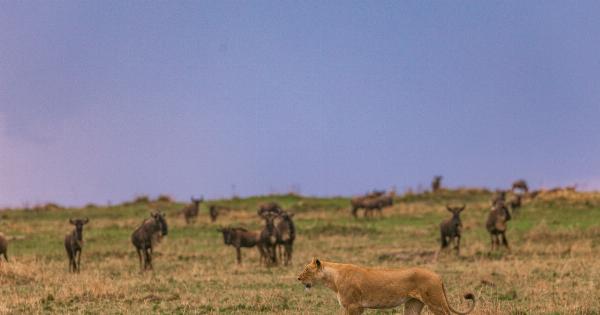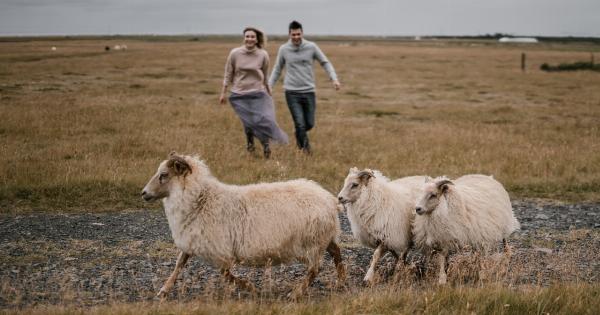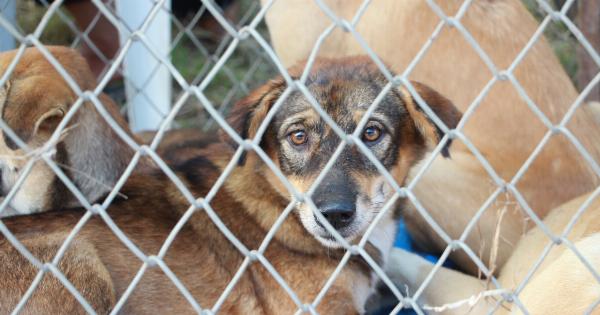Edinburgh, the capital city of Scotland, has been making innovative contributions to various fields. In recent years, the city has been contributing to the scientific field by breeding unconventional sheep to combat Bathen disease.
Bathen disease, a severe illness caused by the bacterium Pasteurella multocida, is transmitted through the bite of an infected insect. The disease affects not only sheep but also other domestic and wild animals, humans, and birds. Edinburgh’s unconventional method of breeding sheep is aimed at producing a new breed of sheep that can withstand the disease.
What is Bathen Disease?
Bathen disease, also known as Pasteurellosis, is an infectious disease caused by the bacterium Pasteurella multocida.
The disease is primarily transmitted through the bite of an infected insect, such as flies or ticks, and can affect both domestic and wild animals, humans, and birds. The disease’s symptoms in animals include sudden death, fever, depression, anorexia, respiratory distress, and septic shock.
In humans, the disease can cause a range of symptoms, from mild skin infections to severe respiratory infections, septicemia, and meningitis.
Current Methods to Combat Bathen Disease
Currently, the methods used to combat Bathen disease in sheep are limited and often ineffective. Antibiotics can treat sick animals, but they have limited use in preventing the spread of the disease.
The conventional approach to breeding sheep for resistance to the disease involves selecting the naturally resistant individuals and breeding them. However, this method is often not feasible, as the disease is prevalent in many areas and can quickly spread to new herds, making it challenging to find naturally resistant individuals.
Edinburgh’s Unconventional Method for Breeding Sheep
Edinburgh’s unconventional method for breeding sheep is aimed at producing a new breed of sheep that can withstand Bathen disease.
The researchers have created genetically modified sheep by introducing a gene from the African Clawed Frog into the sheep’s DNA sequence. The gene from the African Clawed Frog produces an antimicrobial peptide that can kill the bacterium Pasteurella multocida that causes Bathen disease.
Benefits of Edinburgh’s Unconventional Method for Breeding Sheep
The benefits of Edinburgh’s unconventional method for breeding sheep are vast and include:.
- Improved animal welfare: Breeding sheep that are resistant to Bathen disease will improve their overall health and welfare by preventing the animals from becoming sick and suffering.
- Sustainable farming practices: By breeding sheep that are resistant to Bathen disease, farmers can reduce the use of antibiotics, leading to sustainable farming practices.
- Increased food security: By breeding sheep that are resistant to Bathen disease, farmers can yield higher animal productivity, leading to increased food security.
Challenges of Edinburgh’s Unconventional Method for Breeding Sheep
Edinburgh’s unconventional method for breeding sheep faces several challenges, including:.
- Cost: The cost associated with genetically modifying sheep can be high, making it difficult for small farmers to adopt the new technology.
- Ethical concerns: The use of genetically modified sheep raises ethical concerns, as the long-term effects of introducing foreign genes into an animal’s DNA are unknown.
- Regulatory barriers: The use of genetically modified sheep may face regulatory barriers, as some countries may have restrictions on genetically modified organisms.
Conclusion
Edinburgh’s unconventional method for breeding sheep is an innovative approach for combating Bathen disease. While the method has its benefits, it also presents certain challenges, including costs, ethical concerns, and regulatory barriers.
However, if successful, the approach can significantly improve animal welfare, contribute to sustainable farming practices, and increase food security.































